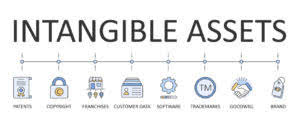
Advanced software can now automatically fetch data from various sources, categorize transactions, and generate accurate reports. These automation features not only save time but also reduce the likelihood of human error, ensuring greater accuracy in financial records. Generating accurate and timely financial statements is vital for decision-making, financial planning, and complying with legal and regulatory requirements. It requires a strong understanding of accounting principles, attention to detail, and proficiency in accounting software.

Want better bookkeeping?

In some cases, they may also be in charge of payroll or other accounting duties. As you can see, a full charge bookkeeper can be considered a big step up in accounting responsibility. Adding a full-charge staff member means you may need to examine your internal bookkeeping needs and hiring goals. The working schedule of a full charge bookkeeper typically follows regular business hours.
Employers: How to Write Great Job Descriptions

A full charge bookkeeper covers a regular bookkeeper’s tasks but does additional, more complex duties. A full charge bookkeeper takes full ownership of a company’s books, from what does full charge bookkeeper mean the everyday details to the big-picture financials. In the office environment, you will have a designated workspace equipped with a computer, accounting software, and other necessary tools.
- A full charge bookkeeper is expected to have a comprehensive understanding of accounting principles and practices, as well as the ability to handle complex financial tasks.
- When it comes to small business bookkeeping, the role of a full charge bookkeeper must be balanced.
- Additionally, these bookkeepers may be required to collaborate with accountants at times.
- Bookkeepers compile balance sheets, income statements, and cash flow statements, providing a clear picture of the organization’s financial performance.
Certification for Bookkeepers
In summary, a full charge bookkeeper and a regular bookkeeper differ in terms of their scope of work, level of autonomy, and salary. A full charge bookkeeper has a broader range of responsibilities and enjoys more independence in decision-making. Their expertise and comprehensive understanding of financial management principles make them crucial assets to a business, which is reflected Bakery Accounting in their higher compensation. On the other hand, a regular bookkeeper focuses on specific areas of financial management and follows established procedures.
- As the name suggests, a ‘full charge’ bookkeeper is responsible for all a company’s accounting tasks.
- They have a more comprehensive understanding of the bookkeeping role, allowing them to support or even lead the current bookkeeping staff with less experienced members.
- Keep these issues in mind as you consider your staffing needs and be ready for some re-adjustment as you fill your bookkeeping roles.
- However, in this role, they have to take the responsibility of managing the complete cycle of accounting duties on behalf of the company.
- To manage the occasional overtime effectively, it is crucial to have strong time management skills.
- However, as they are not certified public accountants, the company would often need to consult a certified public accountant for external audits and tax returns.
A full charge bookkeeper manages all aspects of financial aspects, including taxation. Moreover, the controller can exert influence over future transactions and even initiate expenses if given power, unlike the full charge bookkeeper. A full charge bookkeeper is a professional responsible for handling and discharging duties of all accounting-related requirements of medium or small-sized companies. They have to interact directly with members of the board, auditors, or the president of the company. They must have excellent organizational skills and pay keen attention to intricate details.
- This involves comparing the transactions recorded in the company’s books with the bank statement to identify any discrepancies.
- To excel as a full charge bookkeeper, one must possess a unique blend of educational qualifications, technical expertise, and soft skills.
- As a full charge bookkeeper, you play a crucial role in managing the financial operations of a company.
- Also, the formal education requirements are higher for an accountant, and they need to hold a bachelor’s degree in accounting or finances at least.
This is an excellent resource for becoming certified as a full charge bookkeeper. They offer many different courses that will help you achieve this designation. If you’re interested in becoming a full charge bookkeeper, there are a few things you need to know.
Previous PostWhat Are CFO Services And How CFOs Steer Businesses
The importance of accuracy, effective time management, and proficiency in financial software cannot be understated in the pursuit of becoming a skilled and accomplished full charge bookkeeper. A full charge bookkeeper, however, dives into advanced tasks, like financial forecasting and tax preparation. They bridge the gap between bookkeeping services and professional accounting. Full charge bookkeeping is the ideal solution for small to medium-sized businesses that want to ensure stable financial management as they continue to grow. If your business revenue is gradually increasing, you might consider hiring a full charge bookkeeper to manage your finances well and handle the complexities that come with business growth.
In financial management, full-charge bookkeeping is crucial in maintaining accurate and up-to-date financial records for businesses. This comprehensive approach encompasses various responsibilities that go beyond traditional bookkeeping tasks. In this article, we can delve into the concept of full-charge bookkeeping, its definition, key duties, and its gross vs net differences compared to other financial roles.